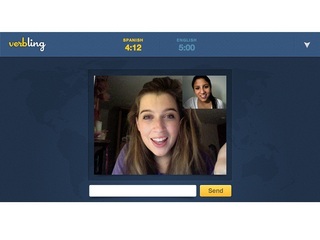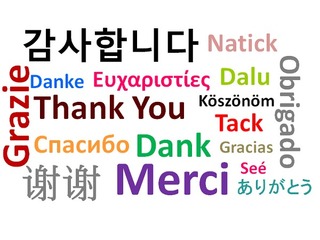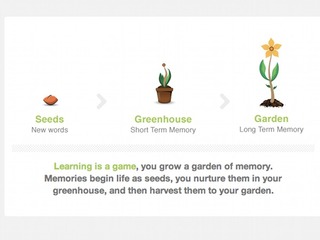Global AI in healthcare market expected to rise to $164B by 2030
The market size for 2023 was $10.31 billion
Read more...
(Updated to reflect comment from Livemocha)
In an effort to bring its services easier to access without having to buy a physical disc, Rosetta Stone has acquired online language-learning community Livemocha for $8.5 million in cash, it was announced Tuesday.
Rosetta Stone already allows users to download its course content through its TOTALe Online service, which features live online Rosetta Studio sessions, games and community, and a mobile apps. With its cloud-based platform, though, Livemocha will allow Rosetta Stone to distribute its products over the Internet quicker and easier.
“Livemocha will enable us to quickly migrate our legacy products to a future-proof technology stack with a modern, cloud-based architecture and contemporary means of distribution,” Rosetta Stone Chief Product Officer West Stringfellow said in a statement.
“But even more exciting, it gives our customers more choice. Livemocha presents us with a low-cost or even free alternative product to offer learners around the world. It becomes a ‘ladder of learning and value’ for our customers.”
So what does Livemocha gets from merging with Rosetta Stone?
Founded in 2007, Seattle-based Livemocha has 16 million members from 195 countries, including language experts, instructors and multi-linguists It offers language courses in over 38 languages, including Arabic, Mandranin Chinese, Norwegian, Portuguese, Serbian and Urdu.
As per the deal, Livemocha will continue to operate out of its current Seattle offices, and will become another arm for Rosetta Stone in the United States, following the establishment of product development offices in Austin and San Francisco. As per the deal, Livemocha will continue to operate, and its users will not be forced to sign up for Rosetta Stone.
"The two products will remain in-market as-is serving different market segments and regions," said Schutzler.
The reason the two companies were a good fit is that Livemocha has "a powerful technology platform on which they can re-build all their products, new products, and become a cloud-based service able to reach mobile, laptop, and pc devices seamlessly," said Schutzler/
"Also, we have a very active community of 16 million members which nobody else has every achieved, and which become a core asset to help Rosetta Stone customers learn. And last, but not least, our team of professionals are passionate about this sector and fit culturally very well with the new team forming under the CEO's leadership. It's a great fit."
The acquisition will help Rosetta Stone expand its footprint in the U.S., so that it will be able to attract talent to fuel the development of its new products. But the purchase also helps the company expand internationally, due to Livemocha's high number of users in China, Russia and South America, particularly in Brazil.
“However you view it—geographically, operationally, technologically, culturally—Rosetta Stone and Livemocha are a terrific fit,” Rosetta Stone CEO Stephen Swad said in a statement. “This acquisition will enable both organizations to grow and deliver value faster and more effectively than either could alone. This is a good deal for our business, a good deal for our customers, and a good deal for language learners all over the world.”
Livemocha raised a total of $14 million, including an $8 million Series B funding round led by August Capital, and contributed to by return backer Maveron, in December 2009.
The online language space
While Rosetta Stone is one of the more recognizable language learning tools out there, simply due to their great ad presence and almost iconic yellow boxes, there is plenty of competition out there, some of which have been raising money over the past couple of years.
In January of 2012, online language acquisition service Verbling raised $1 million in funding from investors DFJ, Learn Capital, Start Fund, Inspovation Ventures, SV Angel, Meck Investments, Ace & Company among others. Then, Memrise, which helps people learn languages in a game-like fashion, raised $1.05 million in February 2012.
Most recently, Babbel, the maker of an online learning system for foreign languages, raised $10 million in a Series B funding round, led by Reed Elsevier Ventures, with participation from Nokia Growth Partners, IBB Beteiligungsgesellschaft and Kizoo.
Earlier this month, Babbel purchased PlaySay, a social language learning app for the iPhone. This was the company's second acquisition, after buying up British language community FriendsAbroad.com in 2008.
(Image source: https://livemocha.com)
The market size for 2023 was $10.31 billion
Read more...At Culture, Religion & Tech, take II in Miami on October 29, 2024
Read more...The company will use the funding to broaden the scope of its AI, including new administrative tasks
Read more...Startup/Business
Joined Vator on
Livemocha is an exciting e-learning Web 2.0 startup founded by a group of experienced and successful entrepreneurs based in the Seattle area. Livemocha addresses a $20 billion worldwide language learning market fueled by rapid globalization, immigration and travel. Livemocha is a first of its kind web based language learning solution integrating online instructional content with a global community of language learners. Livemocha is a venture funded company backed by Maveron, a leading Seattle based venture firm with tremendous consumer and e-learning expertise.
Startup/Business
Joined Vator on
Here you can learn words and phrases in foreign languages and connect with people from all over the world. Pratice on your own with our intuitive online lessons or find a study partner in the international Babbel community



